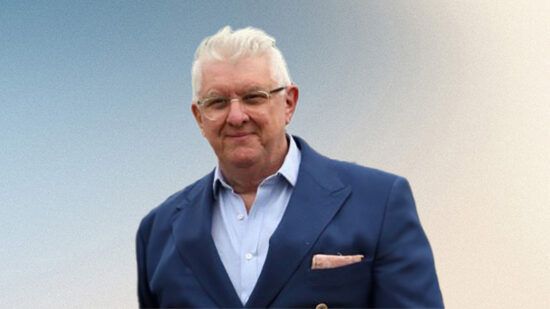Liontrust’s sustainable investment team has said launching its first ever closed-ended mandate will allow exposure to smaller, less liquid companies than is currently accessible on the open-ended fund range.
The group announced its intention to launch the Liontrust ESG Trust (ESGT) managed by Peter Michaelis (pictured), Simon Clements and Chris Foster, at the end of June. It is targeting a raise of £150m for the listing.
It will be managed following the same process used across the open-ended range, which now has more than £10bn in assets under management but will have the capacity to focus on companies that come up in research at the smaller end of the scale that are not frequently included in the OEICs.
Michaelis told ESG Clarity: “We don’t launch new products lightly – our last was in 2014 – but there is clear demand for ESG products. We have been running the open-ended funds over 20 years so the growth to £10bn hasn’t happened overnight, although it has been strong over the past five years.
“While there is this clear demand, there isn’t much product in the closed-ended space, and we have a contingent of investors that like the investment trust structure for our sustainable future approach.”
Foster added the ability to gear the concentrated number of holdings and access to smaller “pure play” companies were the key reasons to launch a closed-ended version. The most similar open-ended version is the team’s £1.5bn Sustainable Future Global Growth Fund.
“The starting point for our idea generation is the sustainable themes we are researching,” Foster said. “Ideas at this first stage are then constrained by market cap and liquidity – we find names that are interesting but we can’t invest in.
“ESGT gives us the ability to concentrate the portfolio on best ideas; investing in companies with strongest sustainable characteristics, the strongest exposure to sustainable themes, the most upside and the best fundamentals.”
The trust will hold between 25-30 stocks, while the open-ended Global Growth mandate typically features 40-50. It will invest across a global universe but Michaelis said this is likely to concentrate on developed markets with little exposure to emerging regions.
Foster also highlighted this concentrated approach will give the managers access to “pure plays” in the smaller part of the market. For example, they previously held a North American company called Trupanion, which exclusively offered pet insurance – something that is usually a small part of a large organisation making a “pure play” on pet insurance difficult.
“It is quite small around the $1bn market cap but it is somewhere we had very high conviction,” Foster explained.
Only 1-2% of all pets in North America are insured compared with 20-25% in Europe, he said, and Trupanion came to a market where the existing products “weren’t very good” with a “best in class product” that suited a lot of people.
“It is a brilliant sustainability story, and is growing the penetration rate of insurance in its region.”
“We held it in the Global Growth Fund and it doubled its share price twice but had limited impact on the fund due to its size so we exited at the start of 2021.
“If we held it in the investment trust, it would be a much bigger position and have a stronger impact on the performance overall.”
SDG research
Another key differentiator of the trust from the open-ended range is 10% of the management fee will be used to fund research to identify and develop financial instruments covering those UN Sustainable Development Goals (SDGs) that are currently uninvestable.
Michaelis said when assessing the funds’ exposures to the SDGs they realised there were a number of significant Goals that were not being addressed.
“There aren’t any large investment options to deliver on poverty, hunger and biodiversity, for example.
“We felt we should start to develop ways to support those SDGs from an investment perspective but working with partners such as Fair Finance, who figure out ways to lend to people that do not fit classic credit scores.
“This is a very long-term project will combine our investment expertise with that of our partner to create a scalable investment that could lead to an ESGT investment in the future.”
The Liontrust Sustainable Future Global Growth Fund is top quartile over three and five years, according to FE Analytics. Over five years to 7 May 2021 it has returned 150.5% compared to the IA Global sector average of 99%.








